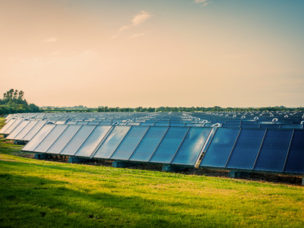Stay in the know
Subscribe to the Real Estate Blog and we’ll send you an email each time something new is posted.
Subscribe to the Real Estate Blog and we’ll send you an email each time something new is posted.
Blogs
Real Estate Blog
Massachusetts Clean Energy Center Releases Annual Report
The Massachusetts Clean Energy Center (MassCEC) released its superb Annual Report on the state of the clean energy industry in the Commonwealth. The report includes plenty of positive news and generated lots of headlines. There are almost 80,000 workers engaged in clean energy, representing an almost 12% increase since 2012. Predictions for 2013 are for another 11% in job growth for the clean energy industry.
The report deserves careful reading beyond the headlines. Yes, there are cautionary notes that venture capital flows are slowing – but what is more significant is the breakdown of the state’s clean tech industry.
The report slices and dices the clean tech industry by business focus of the employers: renewal energy, energy efficiency, alternative transportation, and carbon management.
- Energy efficiency leads the group in number of current jobs (46,613) and had a strong growth rate of jobs (15.9%).
- Renewables are second in jobs with 30,537 but with 2.6% growth rate.
- Carbon management has a smaller base number jobs (11,807) but grew last year at a 19.7% rate.
- Amongst renewables, solar leads as the technology employing the most people. Solar employs almost 60% of workers focused on renewable energy. Hydopower employs 13.1% and wind 10.8%.
Most significantly, the report analyzes the clean tech industry by what it characterizes as two different types of businesses. One is captioned “innovation-focused firms” and the other as “traditional firms”. Innovation-focused firms are stereotyped as Kendall Square or Innovation District firms – think Enernoc (at the upper end of scale). Traditional firms are characterized as HVAC, plumbing and other contractors – think Broadway Electric. The report notes that each of these two broad groups looks to hire and train somewhat different type workers – Kendall Square versus IBEW.
The authors of the report recognize that these two categories for the industry are somewhat arbitrary and artificial. The entire clean tech industry is “innovative”. In next year’s report, they can refine the characterizations of the industry more accurately by analogy to the health care industry. In health care, Massachusetts has “innovation-focused” businesses but it also has practitioners – physicians, nurses and other health care workers delivering services. Likewise, in clean tech there is an innovation-focused segment and an industry segment composed of practitioners who design, manufacture, install and maintain renewables and energy efficiency devices and services. Perhaps the captions: “innovation-focused” and “clean tech practitioners” could be adopted in the future.
The MassCEC report provides thought-provoking insights into the Commonwealth’s clean tech industry and warrants a read.

